 |
| In the digital age, lifelong learning is not just an option but has become an essential requirement. (Source: VGP) |
The article on "Lifelong Learning" by General Secretary To Lam affirmed the importance of learning and constantly updating knowledge and skills. Learning not only helps people adapt to rapid changes but also trains innovative thinking, the spirit of daring to think, daring to speak, daring to do, daring to take responsibility, becoming capable and intelligent citizens in the future...
Nowadays, technology is developing rapidly and changing rapidly, lifelong learning is not only a trend but also an essential survival skill. Not only that, continuous learning also reflects the ability to adapt and develop of each individual in modern society, where old jobs and knowledge gradually become obsolete, while new requirements continuously appear.
| Related news |
 Lifelong learning Lifelong learning |
The digital age brings us countless conveniences, but also creates significant challenges. Information technology, artificial intelligence, automation, and online tools are changing the way we work and learn every day. Traditional jobs can be replaced by robots, software, or new technologies, and human skill requirements are constantly changing. Therefore, if we do not maintain the habit of learning and updating new knowledge, we can easily be left behind.
Lifelong learning is not only about acquiring new technical knowledge but also about improving soft skills such as problem-solving, critical thinking and the ability to work in a diverse and constantly changing environment. Learning is not limited to formal classrooms, but can also take place through online courses, independent study, or even real-life experiences. With the development of online learning platforms, learning is becoming easier and easier.
One of the important reasons why lifelong learning is a survival skill in the digital age is the ability to be creative and innovative. As technology changes constantly, maintaining an open mind, always learning and experimenting will help us not only cope with change but also create change. Lifelong learning encourages the practice of creative thinking, finding new solutions and always being ready to face challenges. These factors will help each individual not only maintain their position in work but also be able to develop strongly and adapt well to all situations.
In the digital age, career stability is no longer guaranteed. Companies are always looking for people who are creative, flexible and can apply new technologies to their work. People who know how to learn and develop themselves throughout their lives will have a greater chance of getting promoted, or at least maintaining their position in a volatile work environment.
To develop learning, a comprehensive solution is needed that combines changing individual awareness, reforming the education system, applying technology, and supporting family and community. When these factors are synchronized and implemented effectively, lifelong learning will become an indispensable part of the journey of personal and social development.
In our country, education is considered a top national policy. We have the Project "Building a Learning Society for the 2021-2030 Period", approved by the Prime Minister under Decision No. 1373/QD-TTg on July 30, 2021, aiming to create a fundamental change in building a learning society. This goal ensures that by 2030, all people have equal opportunities and treatment in accessing an open, diverse, flexible, interconnected and modern education system. However, to realize the goal of lifelong learning and create a learning society, it is important to make learning accessible anytime, anywhere.
Families play a vital role in shaping and developing lifelong learning habits in children. In today’s rapidly changing technological, economic and social world, nurturing a spirit of inquiry and discovery not only helps children succeed academically but also prepares them to adapt and thrive in an ever-changing world.
A positive learning environment includes not only physical conditions such as desks and books, but also a space that encourages children to explore and be creative. Parents can provide rich learning resources such as books, newspapers or online learning tools.
The responsibility of the family is not only to provide knowledge but also to encourage children to develop critical thinking and a spirit of learning. Parents can arouse children's curiosity and exploration by asking interesting questions, helping them find answers themselves, or encouraging them to participate in extracurricular activities that help expand their knowledge. Creating a connection between learning and real-life experiences will help children realize that learning is not just about learning from books but also a continuous process of exploring the world around them. Children learn a lot from what they see and experience. If parents demonstrate the habit of learning, exploring and developing themselves, children will follow.
In addition, parents should focus on developing not only knowledge but also soft skills such as communication, teamwork, creativity and problem solving. Lifelong learning is not always easy, there will be times when children encounter difficulties and challenges. At this time, the family needs to be a solid source of encouragement, encouraging children to continue trying and not giving up. Recognizing and praising efforts, no matter how small, will help children feel confident and motivated to continue learning.
It can be said that the family is not only a place to provide initial knowledge but also a place to form the foundation for children to develop a lifelong learning attitude. Creating a positive learning environment, encouraging curiosity, setting an example and motivating will help children not only achieve academic success but also become self-learning, creative and adaptable individuals.
Lifelong learning has long been of special interest to the world because of the inevitable needs of people and society. Before the 4.0 Industrial Revolution, that need is more important than ever. People are being challenged to innovate, learn and adapt constantly to changes in nature, science and technology. Therefore, if we stop exchanging, learning and interacting to keep up with the times, we will be left behind. At this time, lifelong learning is not only an option but has become an essential requirement...


![[Photo] Prime Minister Pham Minh Chinh chairs conference on breakthrough solutions for social housing development](https://vphoto.vietnam.vn/thumb/1200x675/vietnam/resource/IMAGE/2025/10/24/1761294193033_dsc-0146-7834-jpg.webp)

![[Photo] President Luong Cuong chaired the welcoming ceremony and held talks with United Nations Secretary-General Antonio Guterres](https://vphoto.vietnam.vn/thumb/1200x675/vietnam/resource/IMAGE/2025/10/24/1761304699186_ndo_br_1-jpg.webp)
![[Photo] Prime Minister Pham Minh Chinh and South African President Matamela Cyril Ramaphosa attend the business forum](https://vphoto.vietnam.vn/thumb/1200x675/vietnam/resource/IMAGE/2025/10/24/1761302295638_dsc-0409-jpg.webp)
![[Photo] Solemn funeral of former Vice Chairman of the Council of Ministers Tran Phuong](https://vphoto.vietnam.vn/thumb/1200x675/vietnam/resource/IMAGE/2025/10/24/1761295093441_tang-le-tran-phuong-1998-4576-jpg.webp)









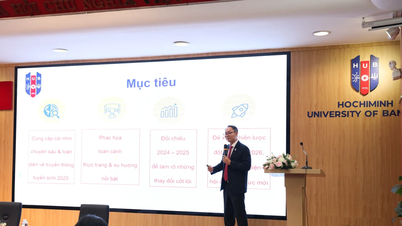




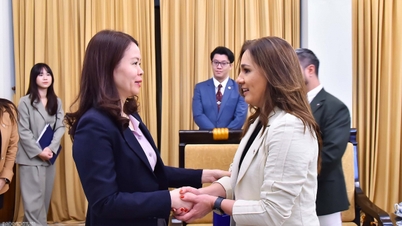
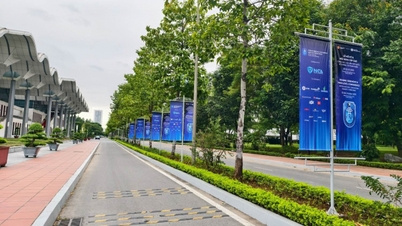



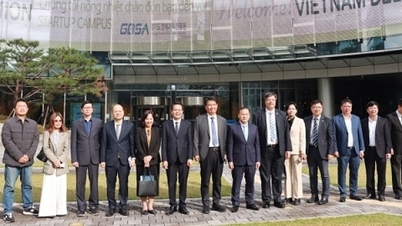




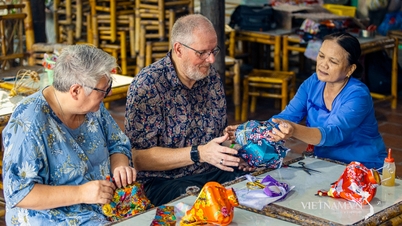






























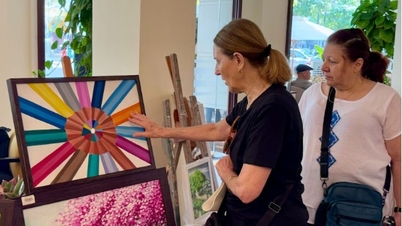





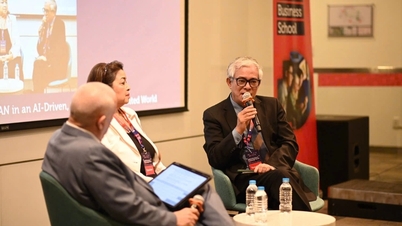



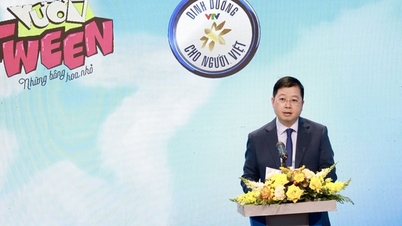





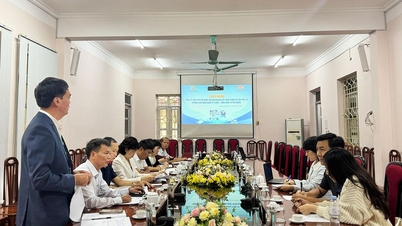

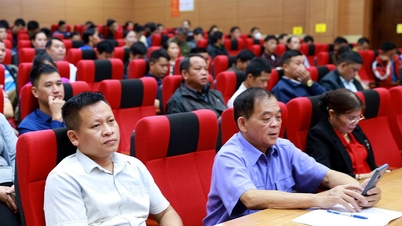


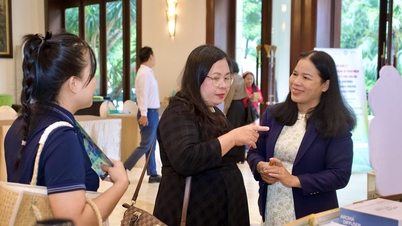


















Comment (0)